

The Hudson River State Hospital, located outside of Poughkeepsie, was once a psychiatric hospital run by New York state. Although it is a National Historic Landmark, it’s been declining as a ruin since the early 2000s. As part of the treatment philosophy of the time, some of the country’s best architects were involved in the design of the hospital, including Calvert Vaux and Frederick Law Olmstead, the duo who created Central Park and did the grounds here. The land itself was once owned by the Roosevelt family. We recently took a visit to explore and document the state of the hospital.
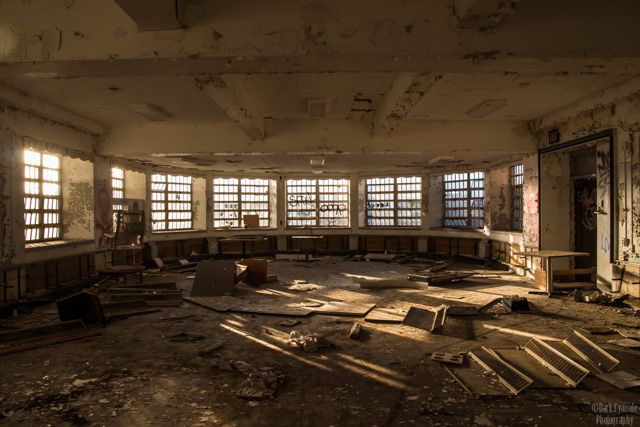
The whole facility is gated off and is patrolled daily. The hospital consists of at least 15 different buildings with multiple patients wings, a criminally insane ward, a modern-style recreation center, morgue, powerhouse, chapel, theaters and its own railroad line.
The Clarence O. Cheney Building, pictured above, is a 10 story steel structure building that housed some patients, medical examination rooms, and doctor offices. The building first opened in 1952 and was named after the superintendent of the psychiatric center. Most of the medical equipment was left behind and has been destroyed by vandals or collecting years worth of dust. Entering the building is difficult do, with reinforced windows and doors with metal bars.
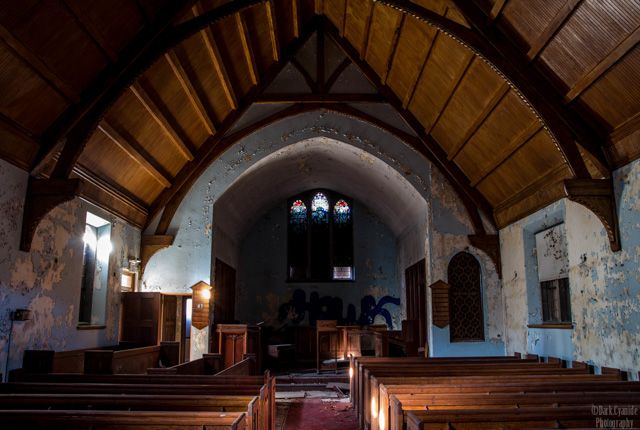
The psychiatric center also provided patients with many sorts of facilities such as the chapel above (the Presbyterian one, with an Catholic church also on the property), a recreation center and theaters.
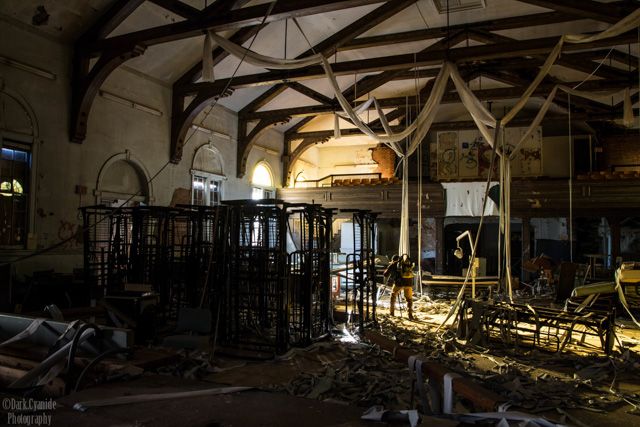
The inside of the theater above has been transformed as a makeshift storage area for old decaying medical beds and medical equipment. The whole place is littered with long strand of papers hanging from the ceiling and all over the ground. There are two huge early 1950s movie posters tucked away in the back. There’s a stage with props scattered around the facility and an old piano can still play (sort of).
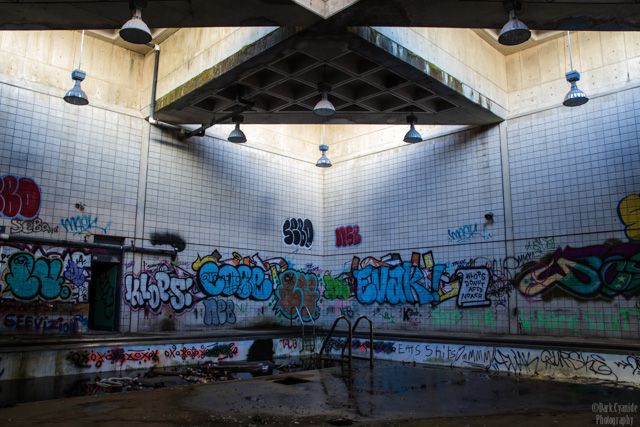
The Herman B. Snow Rehabilitation Center was a modern concrete and glass structure, opened in 1971, that contained an in-ground swimming pool, two bowling lanes, a basketball court, an auditorium, showers, and small cafeteria. Most of the structure is only lit with natural light flowing in through large windows. The whole building is in fairly good condition structurally with the exception of graffiti throughout, broken windows, and bloated wooden floors. The pool has been filled with rain water over the years and is a murky dark color with medical equipment submerged inside.
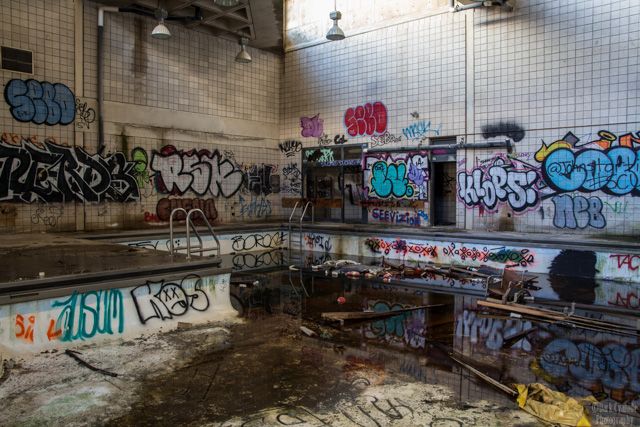
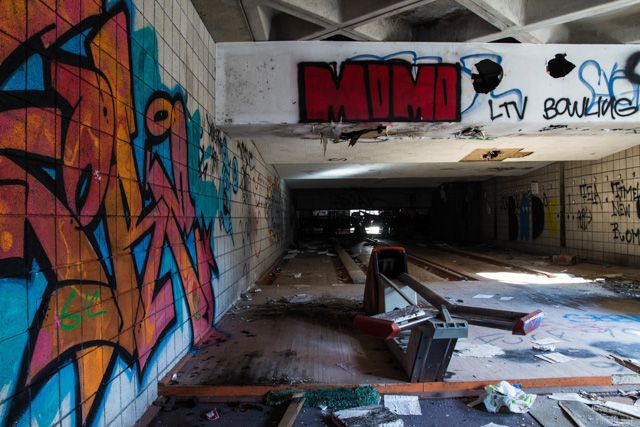
The main building, Kirkbride, built in a High Victorian Gothic style, was named after Dr. Thomas Story Kirkbride, an influencer in hospital design in the 19th century. It was the main building for administrative offices. It’s about six stories high including the attic with chipping paint on all the walls and fancy rugs, a sign of the extravagance the management was criticized for the year it was finished. An editorial in The New York Times stated, “The floors are laid in yellow Southern pine, the most expensive of the flooring, fitted and cut in a way greatly to enhance the cost. The heating is arranged on a scale that, with only 150 patients, ten tons (9 tonnes) of coal per day is consumed. The mention of these items sufficiently explains the disappearance of $1,200,000 of the people’s money”
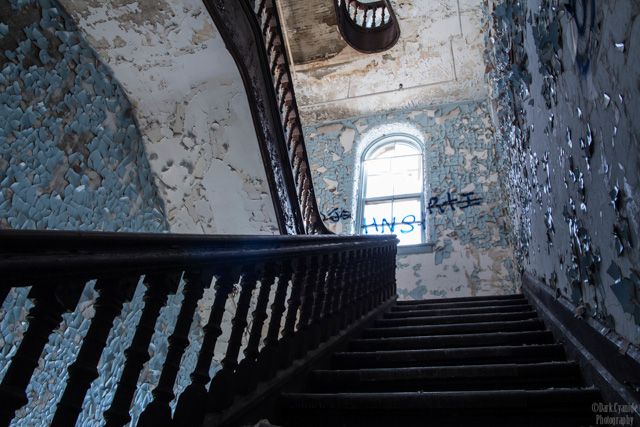
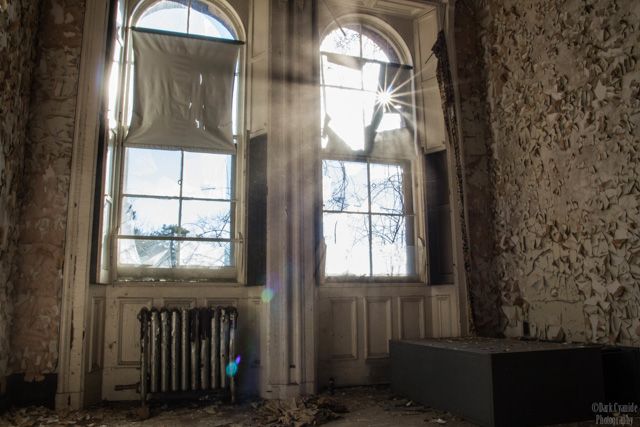
Kirkbride also has patient wings that have been heavily damaged and unstable from a large fire when lightning struck the building in May 2007. The destroyed, burnt down patient wings of Kirkbride now look like a war scene of a WWII movie, and the incident has put redevelopment plans into jeopardy.
Finally, Ryon Hall is a semi-large complex where the criminally insane were housed. Patient rooms were small with a barred window and large metal doors. This building also had a small section for child patients as well. It’s one of the creepiest buildings to photograph, not discounting the multiple accounts of paranormal activity.
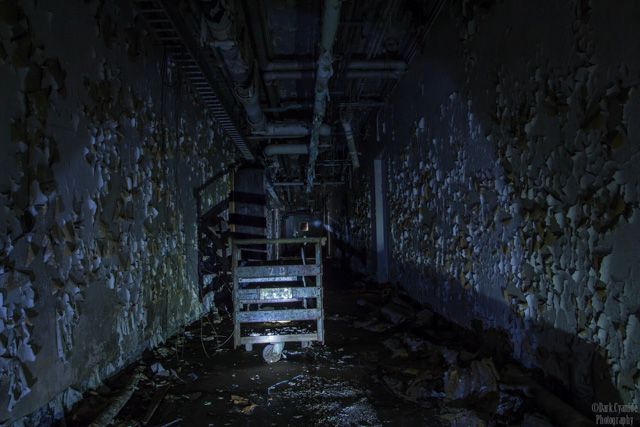
Next, check out 10 abandoned hospitals and asylums in NYC.

